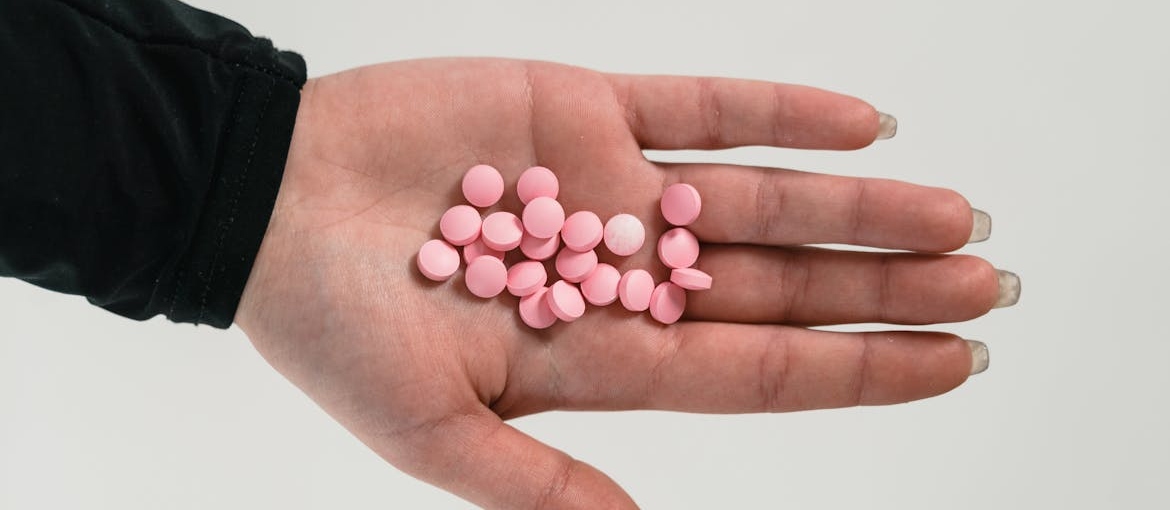Many people wonder if addiction is simply a choice or if it can be passed down through family lines. Research shows that genetics and addiction are closely connected, and family history can play a major role in someone’s risk for substance use. This doesn’t mean addiction is guaranteed, but it does mean some people may be more vulnerable than others. Still, genetics are only one part of the story. Your environment, stress levels, and coping skills matter too. Knowing your risk can help you take steps early and find the right support if needed. Recovery is possible for anyone, even with a strong family history. With the right treatment and resources, you can break the cycle and create a healthier future.
How Genes Influence Addiction Risk
Research shows that genetics and addiction are closely connected. Genes can change how the brain responds to substances, making some people more likely to develop dependence. They may affect dopamine levels, impulse control, and how quickly tolerance builds. This is why two people can try the same drug but only one becomes addicted. Genetics and addiction also explain why family history raises risk across generations.

Still, having these genes doesn’t mean addiction is guaranteed. Choices, support, and treatment all shape the outcome. Knowing how genetics and addiction overlap helps you make informed decisions and seek help earlier. Understanding risk is powerful because it prepares you to act before patterns grow worse. Recovery is always possible, no matter what your DNA suggests.
Environmental Factors vs. Genetic Influence
Addiction is not only about family history. The role of environmental factors in addiction is just as important. Stress, trauma, and exposure to drug use can increase risk even when there’s no genetic link. On the other hand, strong family support and healthy coping skills can protect people with genetic vulnerability. Genetics and addiction matter, but environment often decides when or if use begins.
This balance between nature and nurture shows why recovery looks different for everyone. If your environment triggers substance use, changing it can make a big difference. Therapy, peer groups, and safe housing all help limit those outside pressures. While genetics increase susceptibility, environment often sets the stage. Addressing both creates the strongest foundation for lasting recovery and stability.
Substance Types and Genetic Vulnerability
Different substances affect people in different ways, and genetics can increase the risk of misuse. Alcohol, heroin, cocaine, and prescription drugs are often tied to family history. Knowing how addiction and genetics interact helps explain why some people struggle more than others. It also shows that while biology raises risk, treatment and support can break the pattern. Let’s look closer at alcohol, street drugs, and prescription medications to see how genetics influence outcomes.
Genetics and Alcohol Addiction
Alcohol addiction and genetics often go hand in hand, making some people more likely to develop dependence. A family history can change how the brain responds to alcohol and increase cravings. Young people with this background may struggle earlier in life. That’s why a rehab center for young adults can be so important.
These programs give age-specific support that helps people build healthier coping skills. Even if genetics raise your risk, treatment can change your path. With counseling, peer groups, and medical care, recovery becomes possible. Alcohol use does not have to control your life. If you or a loved one face these challenges, help is available. Genetics raise questions, but they do not decide your future.

Heroin, Cocaine, and Genetic Susceptibility
Heroin and cocaine carry strong addictive properties, and genetics and drug addiction often connect here. Genes may affect how quickly the body adapts to the drug’s effects, raising the chance of rapid dependence. Families with a history of heavy drug use may pass down greater sensitivity to these substances. Seeking help early is key.
A drug rehab WV program offers structured care for those facing this type of risk. Therapy, detox support, and relapse prevention help people rebuild healthier routines. While addiction has genetic ties, recovery is always possible. With treatment and support, people can move forward despite inherited vulnerabilities. If your family history includes heroin or cocaine use, knowing your risk is the first step toward change.
Prescription Drugs and Inherited Risk
Prescription drug misuse is another area where drug addiction and genetics intersect. For some, genetics influence how the brain reacts to painkillers or anti-anxiety medications, creating a stronger pull toward dependence. This can make quitting harder without professional help. Access to treatment becomes even more important when coverage plays a role.
Programs that accept PEIA insurance rehab coverage allow more people to get the care they need. With counseling, supervised detox, and aftercare support, the cycle can be broken. Misusing prescription drugs doesn’t have to be a lifelong battle. Knowing your risk helps you prepare for healthier choices and timely treatment. Even if your genetics make you more vulnerable, the right plan can support long-term recovery.

Rehab and Recovery Options for Genetic Addiction Risks
When genetics increase the chance of addiction, the right rehab programs can make all the difference. Treatment centers help people manage both the biological and emotional sides of recovery. They use therapy, medical care, and peer support to address underlying risks. Rehab isn’t only about stopping use—it’s about learning tools to manage triggers and build resilience. Let’s look at how rehab supports people facing genetic predisposition to substance use.
Why Rehab Matters for Those With Genetic Predisposition
Do genetics play a role in addiction? Research suggests they do, but environment also matters. People with family history may face stronger cravings and faster dependence. This makes rehab vital. Programs that include dual diagnosis treatment West Virginia locals require help address both addiction and mental health struggles.
These programs give structure and support, helping people manage risks tied to family background. Rehab offers therapy, medication options, and relapse prevention strategies tailored to each person. With the right program, genetics lose their power to define someone’s future. Professional treatment creates a foundation for lasting recovery and a healthier life, even for those with inherited vulnerability.
Long-Term Support and Relapse Prevention in Rehab
Genetics make relapse a concern, which is why ongoing support matters. Rehab programs build long-term strategies that keep people focused on recovery. These strategies often include:
- Peer support groups: Ongoing encouragement from people who share similar struggles.
- Healthy lifestyle plans: Nutrition, exercise, and stress management to reduce relapse risk.
- Aftercare programs: Continued therapy sessions to provide accountability and guidance.
- Family involvement: Support systems that strengthen progress and reduce isolation.
Therapies That Address Both Genes and Behavior
Effective rehab treats more than just drug use. It addresses behavior, thought patterns, and genetic risks. Cognitive behavioral therapy for substance use disorders is one approach that works well for many. It teaches people how to manage cravings, change habits, and handle stress in healthier ways. Therapy also helps uncover the emotional side of addiction, including trauma or depression.

For people with genetic risk, this balance between biology and behavior is key. Therapy gives practical skills to replace harmful patterns and build resilience. Combined with medical care, it creates a strong recovery plan. Genetics may shape risk, but therapy changes outcomes. With the right support, long-term recovery becomes a realistic goal.
Lifestyle Choices That Help Reduce Genetic Risk
While genetics play a role in addiction, daily habits can lower the chances of substance misuse. Your environment, stress levels, and choices all influence outcomes. Even with a strong family history, positive routines can build resilience and help prevent relapse. These lifestyle steps are not replacements for treatment, but they support healthier living and recovery:
- Regular exercise: Improves mood and reduces cravings.
- Healthy diet: Balances brain chemistry and energy levels.
- Quality sleep: Helps regulate emotions and decision-making.
- Stress management: Reduces the urge to self-medicate.
- Positive relationships: Strengthens support systems and accountability.
- Structured routine: Limits triggers and promotes stability.
- Engaging hobbies: Provides healthy outlets for emotions.

Supporting Families With Genetic Addiction Risks
Families play a big role in how addiction develops and how recovery begins. Addiction can pass down through generations, but families can also help break the cycle. Open conversations, therapy, and education help reduce stigma and build healthier patterns. Genetics play a role, but so do choices and support systems. Let’s explore how families can learn about risks, join therapy, and work together to change outcomes for the future.
Helping Loved Ones Understand Hereditary Risk
Is addiction genetic or social? The truth is both genetics and environment contribute. Families with addiction history often need honest discussions. Loved ones may not realize how strong the risks are, and denial makes problems worse. Education helps change that. Programs offering medication assisted treatment in West Virginia give families insight into how genetics affect recovery.
Knowing the science can replace shame with understanding. Families can then focus on practical steps, like seeking counseling, setting boundaries, and supporting healthier coping strategies. Talking about hereditary risk may feel hard, but it creates hope and direction. Families that understand the risks are more prepared to support lasting recovery.
Breaking the Cycle of Addiction Across Generations
Genetics raise risks, but families have the power to change the future. Breaking the cycle means building healthier patterns and replacing old habits. Supportive programs often include:
- Education workshops: Teach families how addiction develops and what treatment involves.
- Parenting support: Help parents model healthy coping for children.
- Community groups: Connect families with others who share similar struggles.
- Relapse planning: Prepare the entire family to handle setbacks together.
Family Therapy and Addiction Education
Family therapy plays a big role in breaking unhealthy cycles. Addiction impacts everyone, not just the person using. Family therapy teaches healthier communication, boundaries, and coping strategies. Rehab centers in West Virginia often include family education programs to help loved ones understand the recovery process.
These programs build trust, reduce conflict, and create stronger support networks. When families learn how addiction and genetics connect, they become part of the solution. They can help their loved one stay accountable while also protecting their own well-being. Family therapy builds resilience and breaks down stigma. It shows that recovery is not a solo effort—it’s a shared journey that benefits the entire household.

Advances in Science and Personalized Treatment
Science continues to study genetics and addiction, which helps shape better treatment options. Research is showing how personalized approaches can support recovery. Genetic testing and tailored rehab programs give people more effective care. Here are some important advances:
- Genetic testing: Identifies inherited risks linked to addiction.
- Targeted medications: Matches treatment to a person’s genetic profile.
- Personalized therapy: Focuses on unique genetic and behavioral patterns.
- Ongoing research: Expands knowledge of genetics and addiction every year.
- Brain imaging technology: Shows how genetics affect brain activity and treatment response.
- Preventive programs: Uses genetic insights to lower risk before addiction begins.
Start Healing—Your Future Can Be Different
Genetics and addiction are linked, but they do not define your future. Having a family history may raise your risk, but it does not mean you are destined to struggle. Many people with genetic vulnerability live full lives without addiction, while others find recovery after facing it. The difference often comes down to support, treatment, and healthy coping skills. If you know addiction runs in your family, you can take action early. Learn your risks, talk openly about them, and reach out for professional help if needed. Rehab and therapy give you tools to manage triggers and build new habits. No matter your background, recovery is always possible. You are not powerless, and the right support can help you create lasting change.



